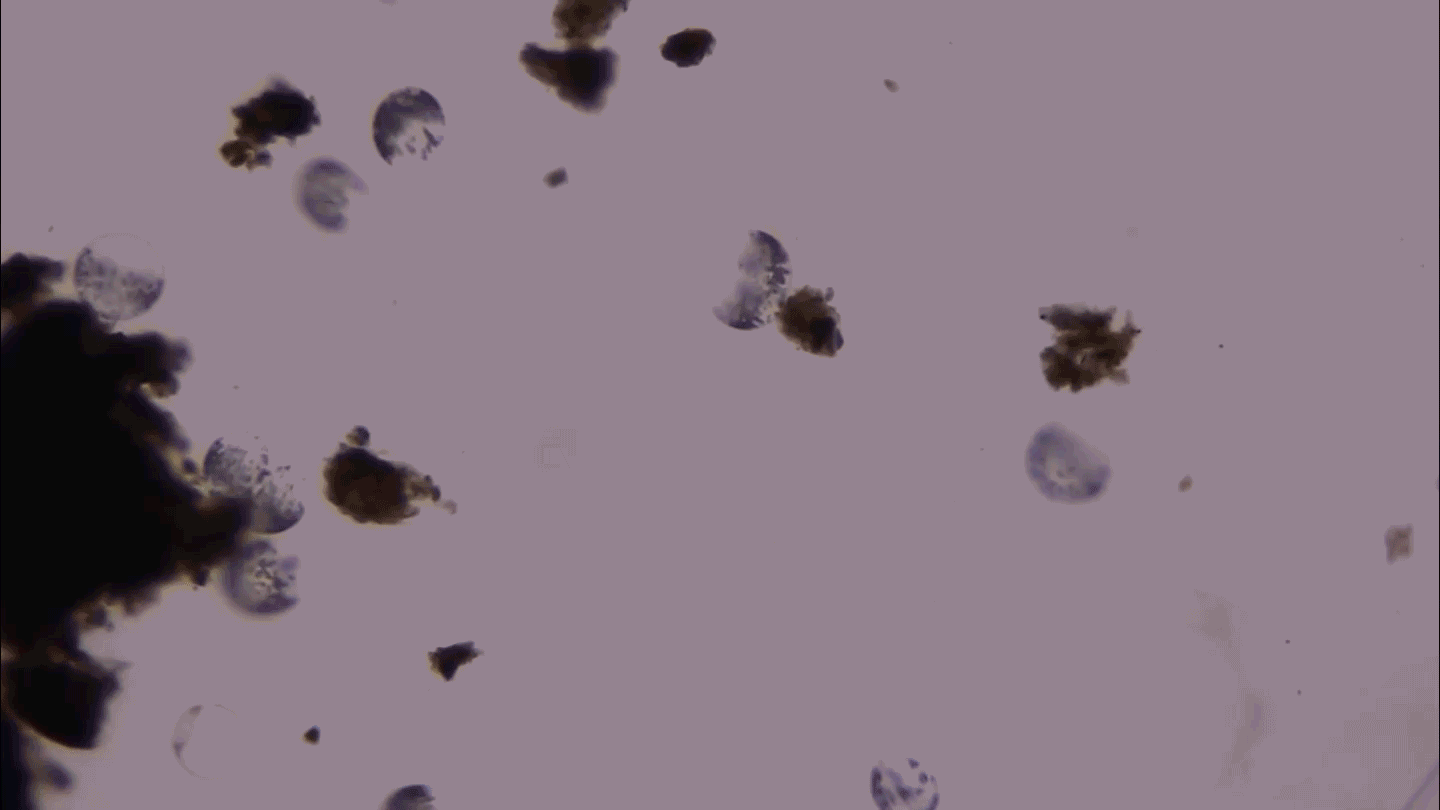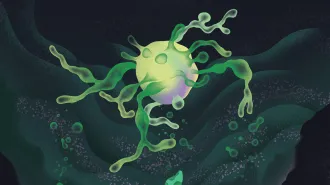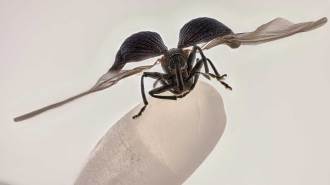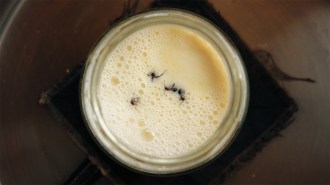
Airplane sewage ends up with a cosmopolitan mix of microbes and the genes that make those bacteria resistant to antibiotic drugs.
servet yigit/iStock/Getty Images Plus
- More than 2 years ago
Read another version of this article at Science News Explores
Sewage from airplanes serves as a melting pot for a globally sourced group of gut microbes. Now, a study suggests that such waste is loaded with bacteria resistant to antibiotics along with a smorgasbord of genes that confer drug resistance. That means airplane waste could be helping to fuel the spread of antibiotic resistance around the world.
In a survey of airplane sewage from five German airports, around 90 percent of 187 E. coli isolated and tested were resistant to at least one antibiotic. For comparison, between 45 and 60 percent of these common gut dwellers collected from inlets to German wastewater treatment plants were drug resistant, the scientists found. And E. coli from airplane sewage was far more likely than that from municipal wastewater to be resistant to three or more antibiotics, researchers report in the Dec. 3 Environmental Science & Technology.
“This is really important work,” says Amy Pruden, an environmental engineer at Virginia Tech in Blacksburg who was not involved with the study. “You read it, and you think, ‘somebody should have done this sooner.’”
When microbes are resistant to multiple drugs, it can make infections difficult to treat or even deadly (SN: 8/16/19). A recent government report estimates that infections of drug-resistant fungi and bacteria claim about 35,000 lives in the United States every year (SN: 11/13/19).
Scientists and public health officials have tended to focus on hospitals as places where these “superbugs” can arise. But people may want to pay special attention to how airport sewage is contained and treated, Pruden says. In this study, airplane sewage E. coli far surpassed drug resistance reported for microbes sampled in German hospitals. The airplane sewage had eight times the prevalence of E. coli resistant to three specific drug classes used to treat urinary tract infections caused by this microbe.
“This study clearly shows that the antibiotic-resistance problem is a global problem, and a global effort is necessary to tackle this severe threat for human and animal health,” says study coauthor Stefanie Hess, a microbiologist at Technische Universität Dresden in Germany.
Along with more resistant microbes, the abundance and diversity of genes that let microbes evade antibiotics were higher in airport sewage than in municipal waste. For some classes of drugs, there were around 10 times as many copies of resistance genes for a given number of microbes. When the mélange of microbes in airport sewage mingles, they may trade these genes.
Antibiotic-resistance genes have a “particularly scary ability,” says microbiologist Carlos Amábile-Cuevas of the Lusara Foundation, a private, nonprofit research institution in Mexico City, who was not involved with the work. They can shuffle around in the DNA of individual bacterial cells and then move from one bacterium to another, he says.
In this work, the researchers didn’t find a higher instance of antibiotic-resistant microbes in wastewater treatment plants that received airport waste compared with plants that didn’t. Amábile-Cuevas says this is because the airport waste is a tiny fraction of what a wastewater treatment plant may receive from a city.
“This doesn’t mean that these bugs aren’t there,” Amábile-Cuevas says. “There may be much more resistant bugs in the wastewater … but they are just below our detection range. And this is also very scary.”
Scientists previously have shown that drug-resistant bacteria and resistance genes can enter the environment with treated wastewater. There, in receiving rivers, bacteria can pass along drug resistance to other microbes. Researchers including Amábile-Cuevas are looking at ways that wastewater treatment can reduce these genes and microbes.
Drug resistance also is known to travel and spread with migrating birds, traveling people and traded food (SN: 6/14/19). This study adds to the evidence of how mobile antibiotic resistance is, Amábile-Cuevas says. It shows that even if an area carefully controls antibiotic use and disposal, it could still end up with antibiotic resistance thanks to a nearby airport. Some might think resistance can be controlled by containing it within a city or country, “but this is really not true at all,” he says.







